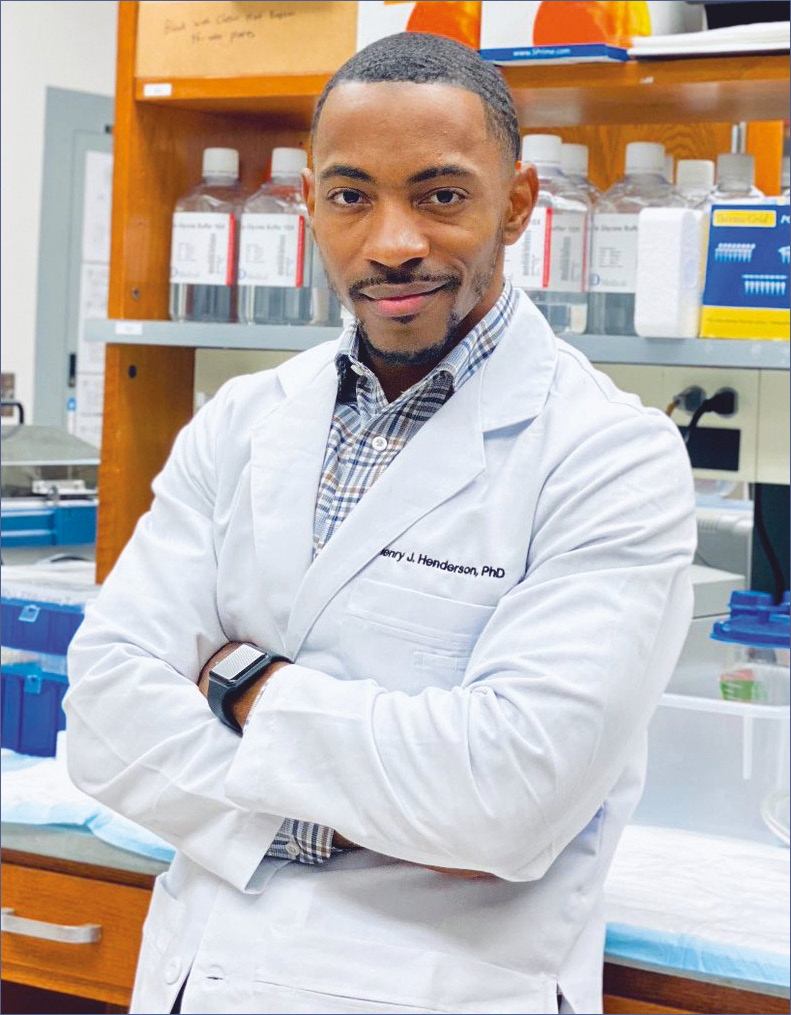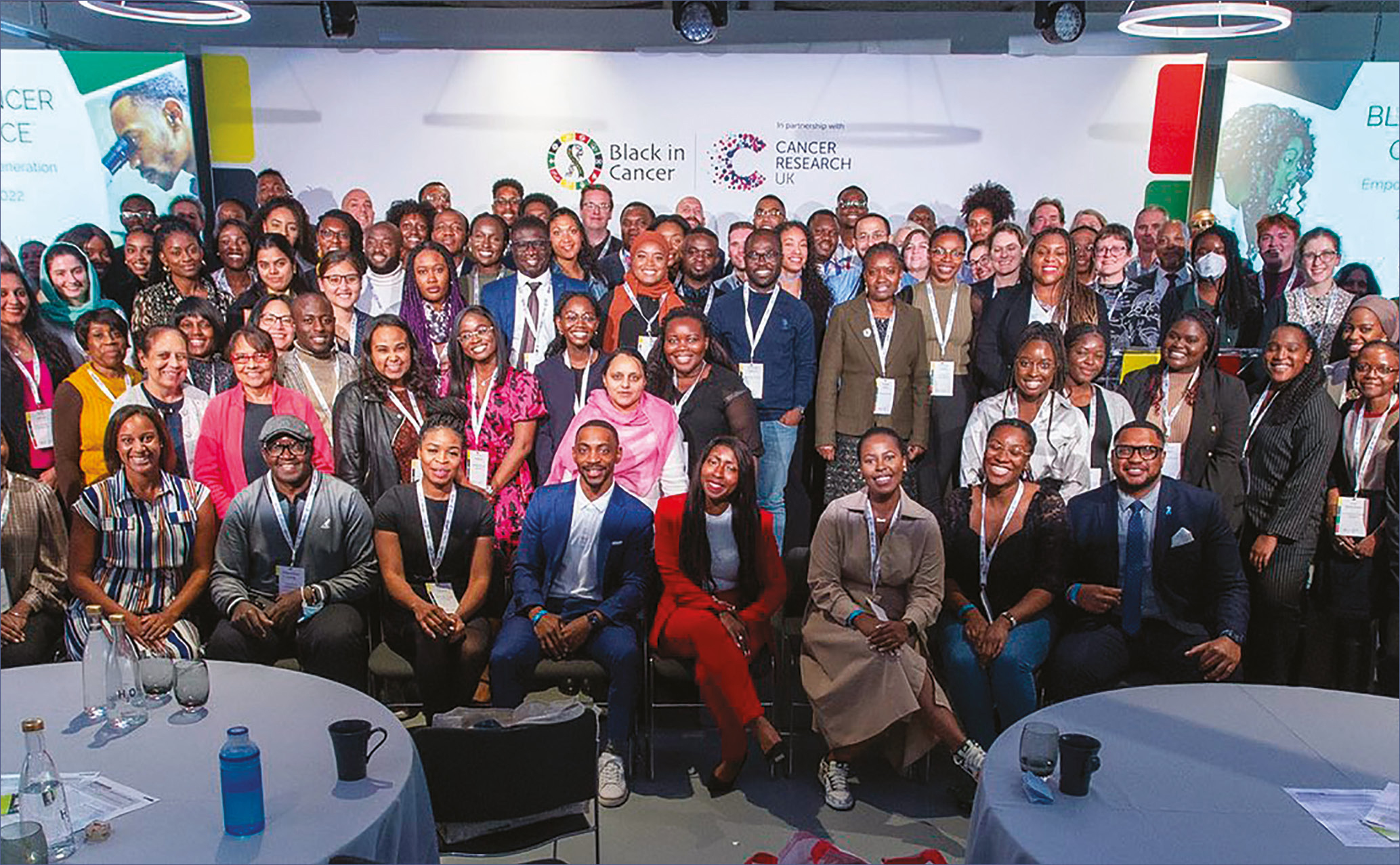FST JOURNAL
Tackling Racism
DOI: https://www.doi.org/10.53289/ZHZS1709
Bringing together the Black scientific community
Sigourney Bonner

Sigourney Bonner is a co-founder of Black in Cancer, an organisation that aims to strengthen networks between Black people in the cancer field while highlighting Black excellence in cancer research and medicine. Sigourney is a graduate student at the University of Cambridge in the Cancer Research UK Cambridge Institute. Her research centres on developing novel models and therapeutics for paediatric brain tumours, more specifically supratentorial ependymoma.
I would like to share something of my journey as a Black cancer researcher and some of the challenges along the way. I am a co-founder of BlackinCancer. In our organisation, a key mantra is: “You can't be what you can't see.” It is so hard to see yourself in a position when you have not seen somebody in that role or position who looks like you.
Speaking to my Mum when I was a child, she asked me what I wanted to be when I grew up. I said: “Oh, I want to be an air hostess, because I really love flying and I really love being on planes.” A couple of years ago, I asked her if she remembered that conversation. She did. So I asked why, if she knew I liked flying, she did not suggest I should become a pilot? She told me it did not even enter her head because she had never seen anybody who looked like us doing that. That is why visibility is so important. It is not necessarily a conscious decision but very subconscious about what is possible in life.
I commenced my undergraduate studies in human physiology at Leeds University and took part in lots of things which people tell you will boost your CV. I worked in a lab, I did a paid summer studentship. Then I spent a year in industry at a pharmaceutical company. In the midst of finishing my studies, I applied for a PhD in that lab, focussing on the technology I had worked on there – I thought I would stand out with that relevant experience. The moment my interviewer came out and called my name, I saw him roll his eyes. It is challenging in that moment to walk in and expect to be treated equally. I did not get that PhD.
I went to work for Pfizer although I was still applying for PhDs. On one unsuccessful application, I received no explanation at all and I spent weeks asking for a response. On another I was told they had picked the other person – I was in the last two – but could not explain why that person was preferred.
Now, I am finally doing my PhD at the University of Cambridge. The statistics of my journey are: 17 applications, six interviews, five years of additional research experience. Three friends who had exactly the same experience as me and exactly the same degrees all went on to do PhDs straight from their undergraduate studies. In 2020-21, fewer than 1% of postgrad research students came from a similar background to mine. That is just not acceptable.
Finding my community
So in the midst of that, I wanted to find my own community. I wanted to find people who looked like me and were working in this area. That was when I met my co-founder, Dr Henry Henderson III – at the time he was a postdoc at Vanderbilt University in Tennessee. We talked about what it meant to be a Black cancer researcher and discovered that we had very similar experiences despite being from different sides of the globe.
 BlackinCancer co-founder Dr Henry Henderson
BlackinCancer co-founder Dr Henry Henderson We wanted to be able to see people who looked like us doing the same kind of things we were doing. Originally, we thought we would post tweets on social media, but today we have gone well beyond that. There has been so much talk about racism within academia and healthcare: we wanted to do something to tackle that. As an organisation, we aimed to connect Black cancer researchers.
As an organisation we do this in a number of ways. For the past two years, we have organised BlackinCancer week, which aims to bring the community together: not just the research community, but also the patient community and advocacy groups in order to help increase cancer survival within the black community. Our Cancer Awareness Project works in education and community engagement. In addition, we have the Black in Cancer Pipeline Programme.
We are international, based both in the UK and the USA. We fully fund an international mentorship programme for 15 US and 15 UK students, who all have a fully-paid eight-week lab placement (we do not want anybody to be hindered by not being paid for this work). In 2021, we awarded $250,000 in postdoc funding to Black cancer researchers and made an additional $100,000 Distinguished Investigator Award: this went to Dr Paula Hammond who is now on the White House Science Committee.
 The inaugural BlackinCancer conference at the Science Museum was held in London in 2022, bringing together leading Black cancer doctors, researchers, and patient advocates from around the world.
The inaugural BlackinCancer conference at the Science Museum was held in London in 2022, bringing together leading Black cancer doctors, researchers, and patient advocates from around the world.Pursuing our dreams
These events are to encourage people into this space, to let them know that there are many different careers available and that they do not have to leave science to pursue their dreams. There were a number of summer internships at institutes in both the UK and the US. In the Mentorship Programme, 100% of both mentees and mentors said they would recommend it.
In October 2022, the inaugural BlackinCancer conference took place in collaboration with Cancer Research UK, held at the Science Museum. The room was filled with Black cancer researchers, patients, advocates and allies. Some 250 delegates took part with talks from across the cancer spectrum. We awarded almost half a million dollars in postdoc funding, because if we are supporting Black students, they need the money to do the work.
And we gave a $300,000 Early Career Investigator Award for a PI to continue the work she is doing in her lab. It is vitally important to provide support all the way across the pipeline, through mentorship, postdoc awards and indeed all the way through.
